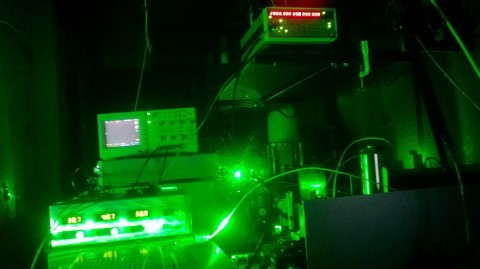
The controversy surrounding hot spots in living cells will be investigated in a new research project, funded in the latest round of the high-profile Human Frontier Science Program grants.
The University of Queensland School of Mathematics and Physics senior lecturer Dr Taras Plakhotnik is principal investigator leading an international team for the study which could result in the discovery of new mechanisms for cellular communications, and may lead to new  approaches in treatment of nerve damage.
approaches in treatment of nerve damage.
“The small heat flux produced by a single cell has been considered negligible. But due to recent progress in ultra-local thermometry at a viewed as a contributor to body temperature is about to be challenged,” he said.
“We consider temperature not as an external factor to a living cell (the current view) but rather as a physiological parameter.
“We aim to resolve the current major controversy of intracellular thermometry around the existence of ultra-local hot spots, and the drastic mismatch between theoretical estimates and reported experimental values of temperature rise in some parts of cells, such as natural hot spots on cell membranes (ion channels and pumps).
“Our team will also investigate the signaling capability of artificial and natural hot spots on cell membranes, and the role of heat in cell differentiation and three-dimensional shaping, particularly thermal guidance of nerve cell growth.”
The international collaboration has attracted USD450,000 a year for three years (about AU$1.76m) and also involves co-investigators from the Institute of Medical Biology, Singapore, Osaka University Japan, and the Russian Academy of Sciences. Work at UQ will focus on the physics of temperature measurements inside cells.
The Human Frontier Science Program (HFSP) is an international program of research support, funding frontier research on the complex mechanisms of living organisms. It provides crucial support to high-risk cutting edge research and international collaboration nearly impossible to get elsewhere.
Dr Plakhotnik said there were 612 submissions in 2017 globally and only 23 successful. The later includes four program grants with Australian participation. Three of these had a UQ investigator – an exceptionally good outcome for the UQ. Professor Kirill Alexandrov, of the Institute for Molecular Bioscience, and Dr Claudia Vickers of the Australian Institute for Bioengineering and Nanotechnology were also awarded funding.
Media: Dr Taras Plakhotnik, taras@physics.uq.edu.au, +61 7 334 69683.



